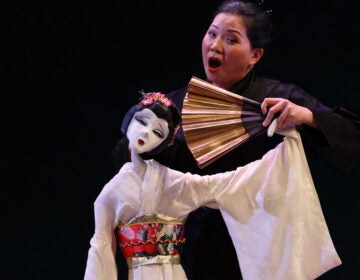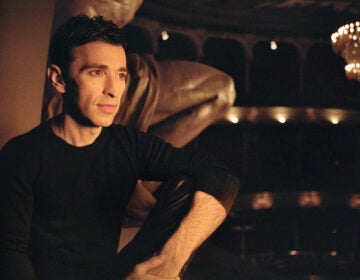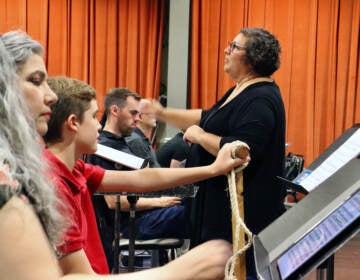Opera Philadelphia opens O19 Fest with a true story of Russian teens’ livestreamed tragedy
"Denis and Katya" tells the true story of Russian teenagers who live-streamed themselves in a suicidal shootout with police.
Listen 3:19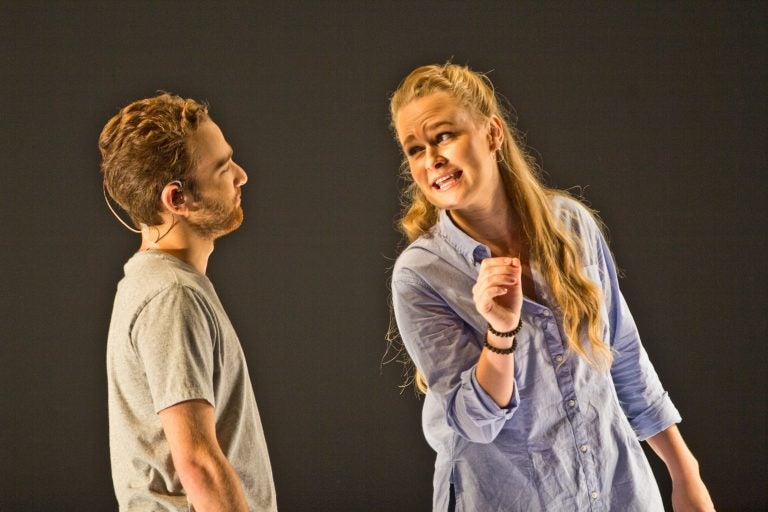
Theo Huffman and Siena Licht Miller perform in Denis and Katya, playing multiple characters examining the aftermath of two teenagers that live-streamed the events that led up to their deaths. (Kimberly Paynter/WHYY)
In 2016 two 15 year-old kids, a boy named Denis and a girl named Katya, ran away from home and barricaded themselves up in a cottage in a part of western Russia. They had guns, alcohol, and a cell phone.
For three days they used the phone to live-stream video of themselves drinking and shooting at police outside.
In the end Denis shot Katya dead, then himself. No one else was killed.
It was tragic. And senseless in the way teenagers wielding guns often is. But from a purely literary perspective, it was Shakespearean.
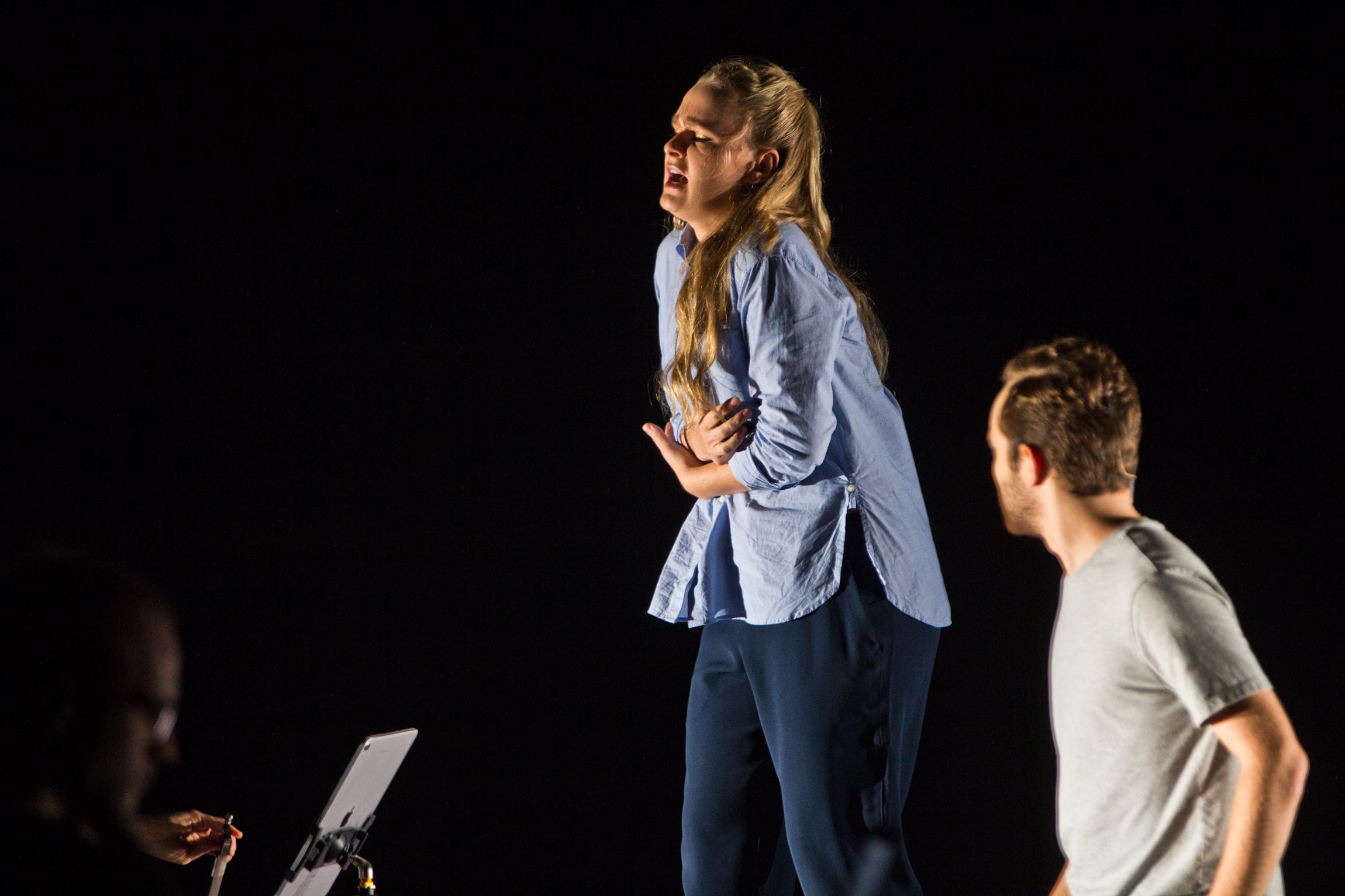
“The basis of this story has parallels to Romeo and Juliet,” said Ted Huffman, a writer and director of opera. “A young couple in love, parents won’t let them be together, a tragic end. Lots of parallels.”
But Huffman and his creative partner, composer Philip Venables, were not interested in retelling Romeo and Juliet.
“For us it’s more about the community and how we react to this kind of news,” he said.
Huffman and Venables created the opera “Denis and Katya,” having its world premiere as part of Opera Philadelphia’s “O19” festival. Opera Philadelphia co-commissioned the work along with Music Theatre Wales and Opéra Orchestre National Montpellier.
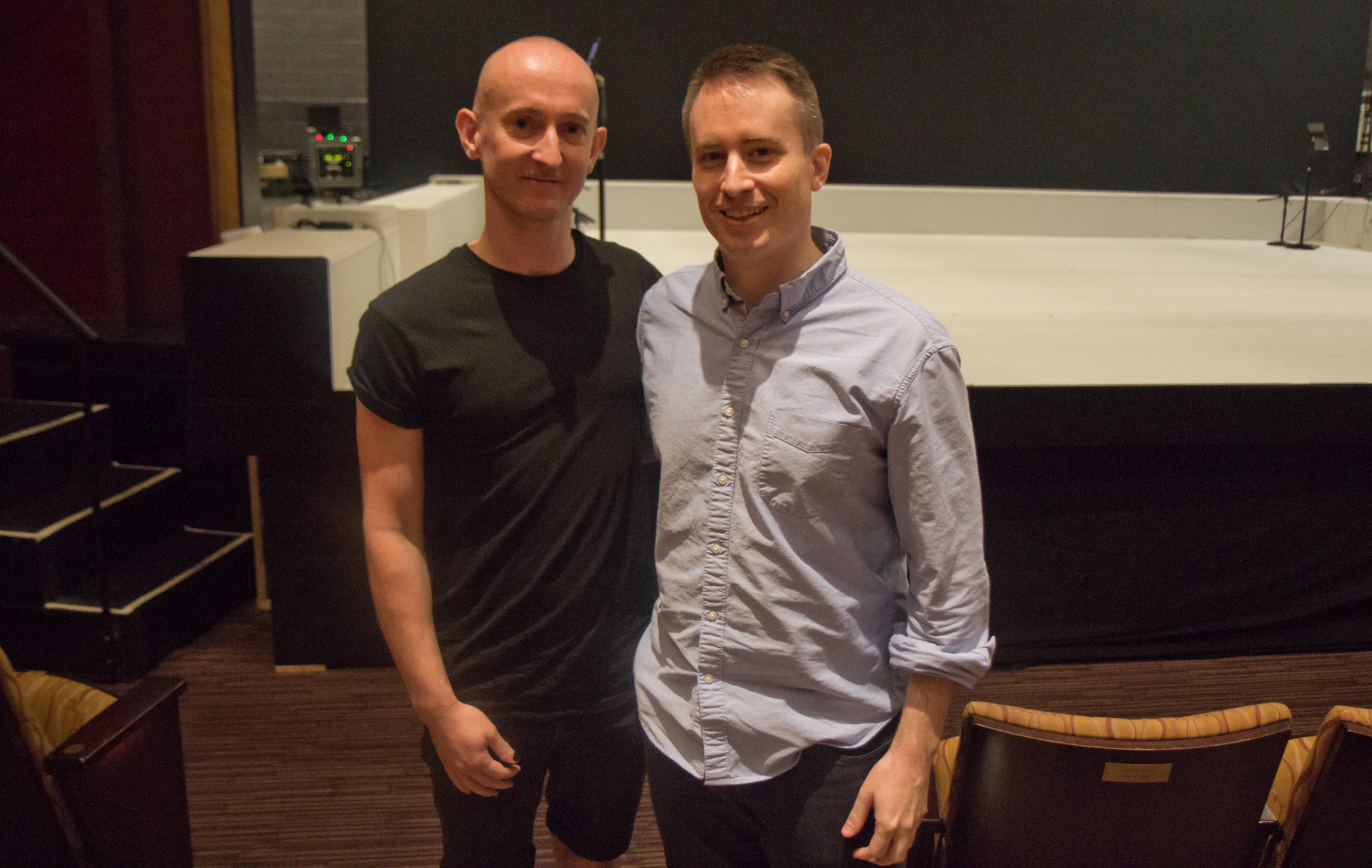
The opera is not just about the teenagers but the unknowable mystery behind why they did it, the confusion of multiple voices surrounding the incident, and the dark online world they inhabited.
Denis and Katya were aware of their online audience, and seemed to be strategizing their antics to build viewers on Periscope (the video livestreaming platform).
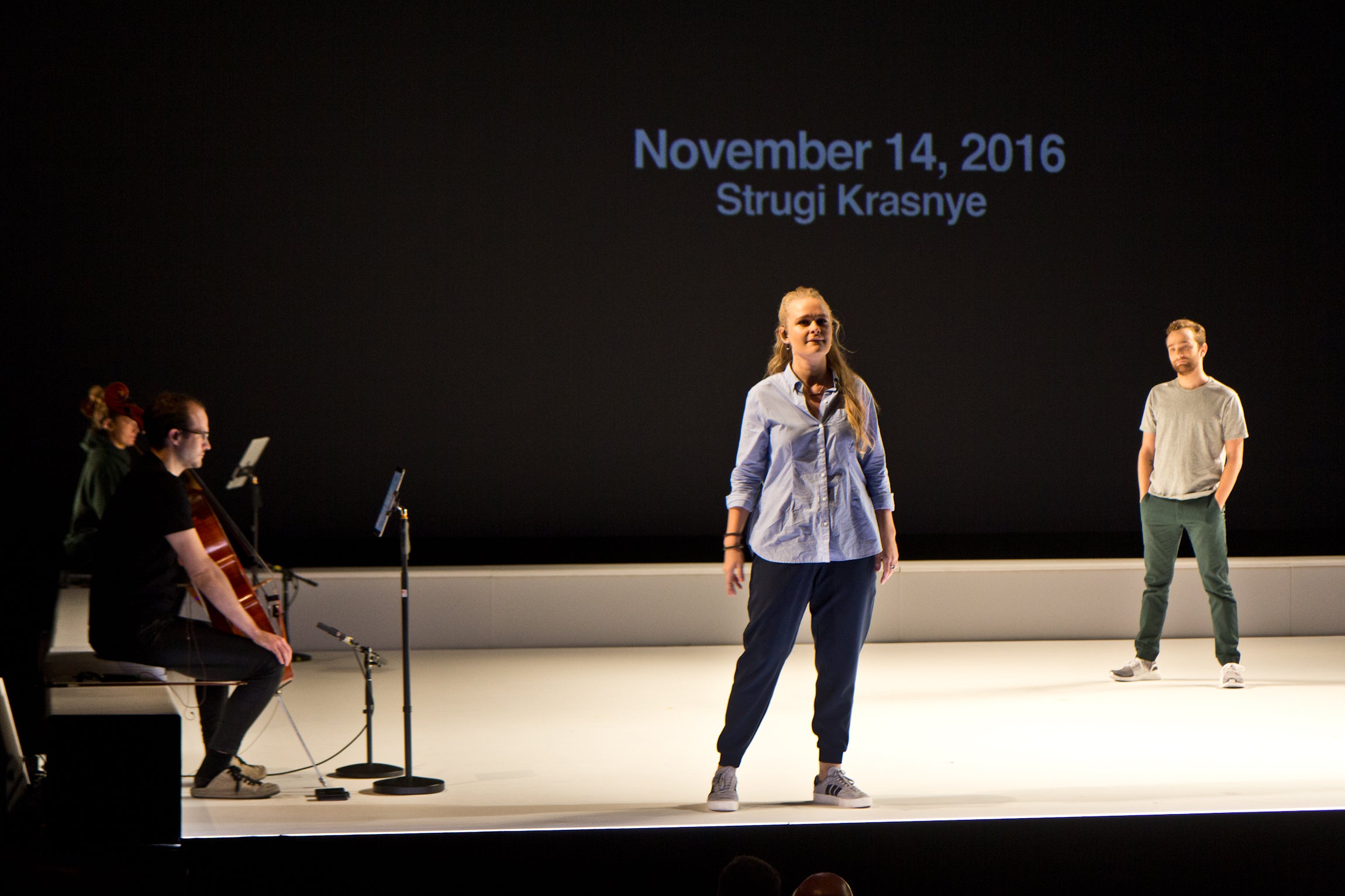
The opera is not traditionally structured as a series of songs with distinct beginnings and ends. Instead, all the music is mashed together.
It becomes an intense, scattershot experience. The longest sustained piece of music is a minute and a half. The shortest is five seconds.
“We cut very, very quickly between them, like a TV documentary with talking head interviews,” said Venables. “The music is written in a similar way. Each character has their own sound world, but they are hard cut and chopped up.”
Four cellists occupying the four corners of the stage perform the music. All the characters are sung by just two singers, with an additional, silent performer: projected text. Words appear accompanied by electronic percussive sound on the back of the stage, sometimes representing the anonymous online audience goading Denis and Katya. The phrases, often vulgar, are taken verbatim from the Periscope feed.
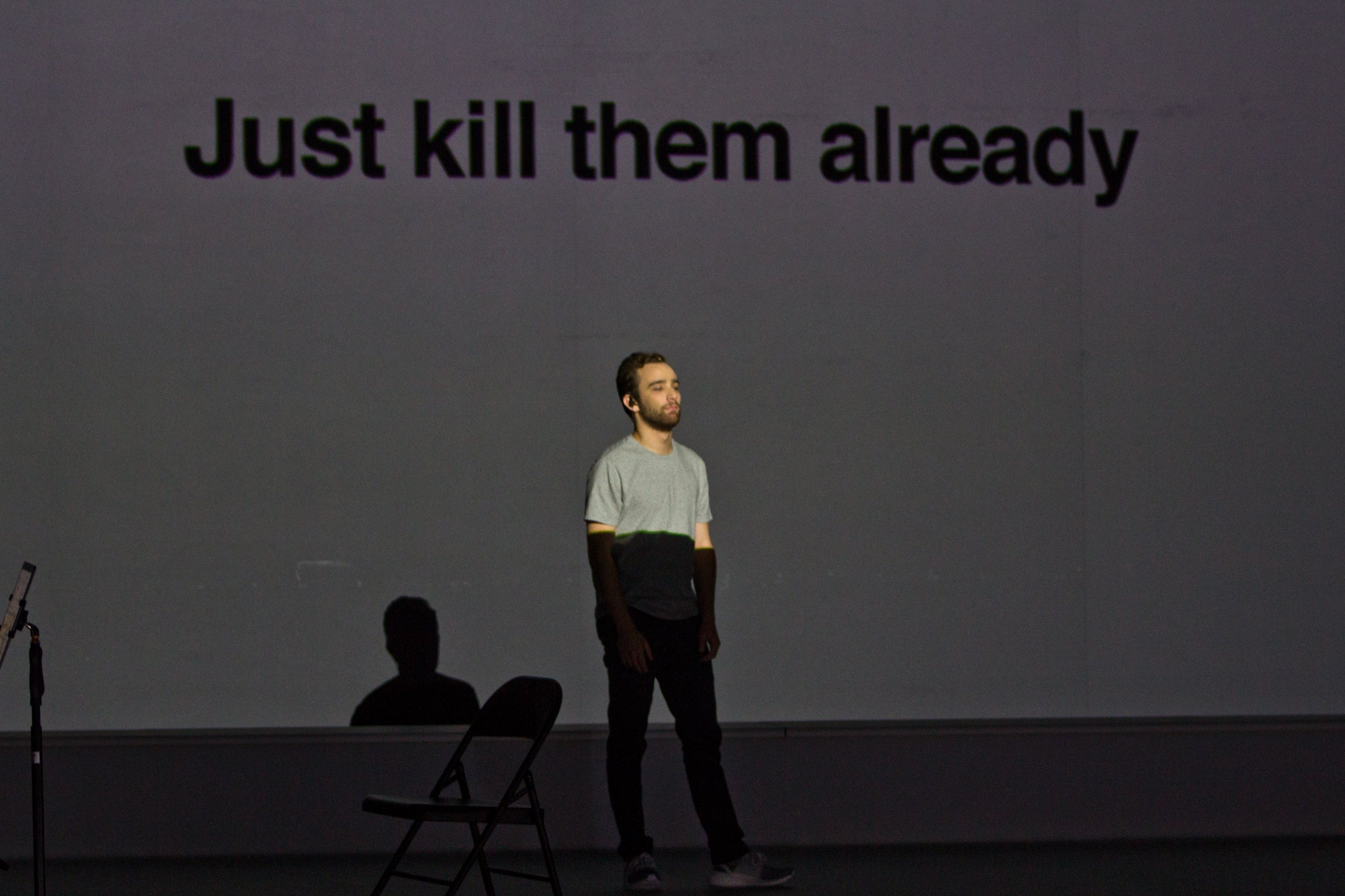
Sometimes the text represents texting exchanges between Huffman and Venables. They had concerns about how far to go with this work: Should they include video footage from the Periscope recording? Should they include their own interviews with Denis and Katya’s friends, who are still minors?
They wanted to include their own reservations about the ethics of documentary theater as part of the performance.
“It’s about storytelling, it’s about different kinds of voyeurism,” said Huffman. “Making the opera is another layer. We are telling the story, so it makes sense to acknowledge that layer. It’s a true story with factual information.”
WHYY is your source for fact-based, in-depth journalism and information. As a nonprofit organization, we rely on financial support from readers like you. Please give today.



